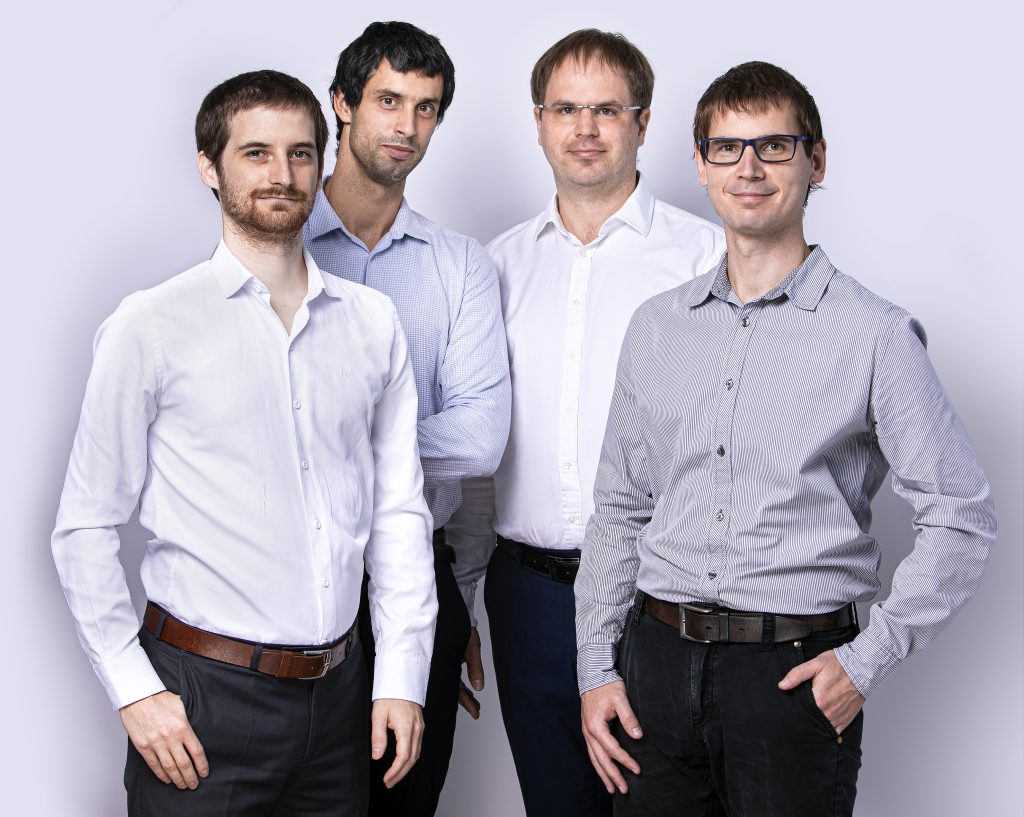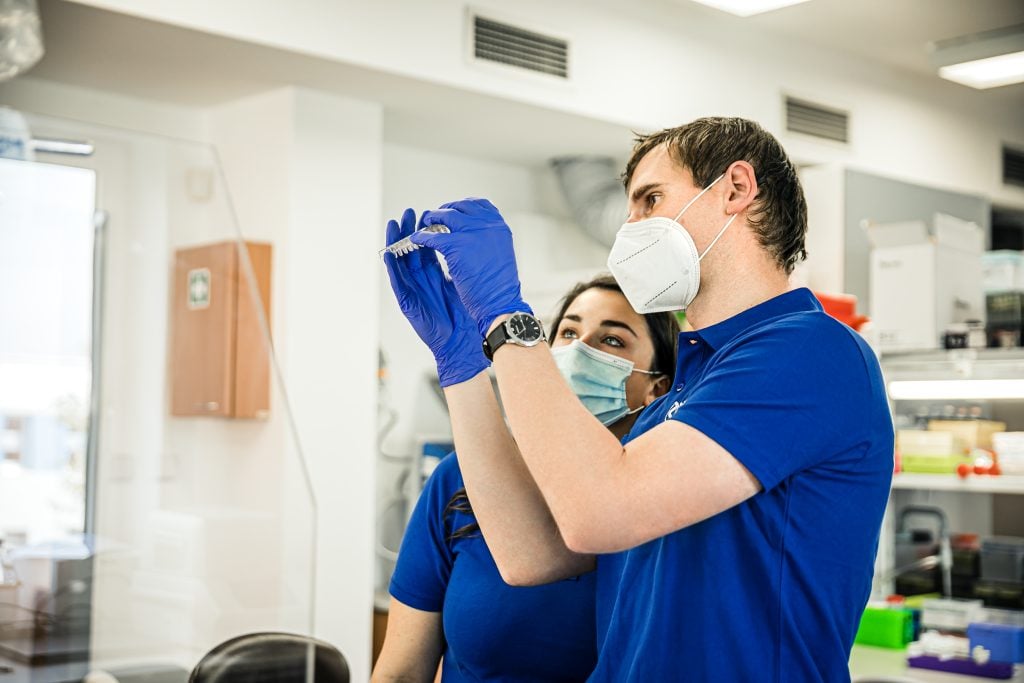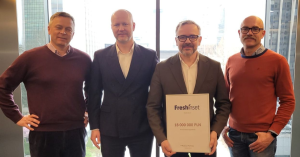The fight against the COVID-19 pandemic in the past three years saw the emergence and rise of many biotech companies and startups, especially in the race for vaccines and anti-viral medications. For Czech-based company DIANA Biotechnologies, the pandemic also became the catalyst of its development.
Founded in 2018 and with an initial seed round of €3.5M, at first the Czech company had a broad field of research and development, with most of it focusing on PCR technology, organic chemistry, and laboratory automation. When the COVID-19 pandemic arrived, for DIANA Biotechnologies this meant blending all of these areas of expertise.
In turn, their PCR chemistry and automated testing solutions allowed hospital labs to process up to 1,500 PCR tests per hour. At the peak of the pandemic they supplied more than 40% of COVID-19 PCR tests in Czech Republic, and their own lab was evaluating more than 10,000 PCR tests a day.
“The tests were highly sensitive, cost-effective, and compatible with high throughput testing and enabled the detection of all major virus variants. Our early warning of the exponential spread of the alpha variant prevented a probable overload of hospitals in the Czech Republic and helped to save at least ten thousand lives,” Martin Dienstbier, CFO and COO of DIANA Biotechnologies, tells The Recursive.
Next the company saw a serious growth of 100,314% and €38.7 worth of revenues – something that prompted its next stage of development: global expansion and reinvesting most of its COVID-related profits into R&D across all three main divisions: molecular diagnostics, drug discovery services, and monoclonal antibody development.
Keeping its R&D activities in the CEE
Both of the company’s founders have a strong background in biochemistry and research – Navratil as scientist with background in natural sciences, and Dienstbier as a former researcher at the University of Oxford.

While the COVID-19-related growth was driven mostly locally in the Czech Republic and Slovakia and the majority of the company’s products are being developed for a global market, its R&D activities are staying put in the CEE.
“What we still plan to keep mainly in Czech and CEE are our R&D activities. We have attracted local talent and established a strong network of collaborations in local research institutions, diagnostic laboratories, and hospitals, which should feed our development activities in the years to come,” the company’s CEO Vaclav Navratil tells The Recursive.
Furthermore, the local talent proved instrumental in helping the company make significant advances in PCR technology.
“The direct PCR, new enzymes, and new protocol designs will now form the base for our next innovative products for other diagnostic indications beyond respiratory viruses (e.g. early detection of sepsis, onco-diagnostics,…) and for our portfolio of reagents for life-science labs,” Navratil points out.
However, the cost of such advances also comes with its challenges. In some instances when local talent isn’t enough, there’s a need for other initiatives – such as drawing Czech scientists back to the country.
“One is our collaboration with the initiative Czexpats in Science, which networks Czech scientists working abroad, some of them at top universities or with relevant industry experience. Many of them are considering returning home and we want them to have DIANA Biotech as their preferred career option,” the company’s COO Dienstbier adds.
Following emerging biotech trends
The company now wants to become a diversified biotech powerhouse in CEE by integrating chemistry, biology, clinics, and IT to address some of the emerging biotech trends, while reinvesting their profits in R&D.

“In our molecular diagnostic division, we are building on our advances in PCR technology to bring innovative solutions for precision diagnostics supporting personalized medicine. Examples of projects include fast sepsis diagnostics or early cancer detection from liquid biopsies,” Navratil explains.
Similar technologies are being offered also to researchers in the company’s life-science division.
“In our antibodies division, we are building a pipeline for the production of high affinity and selective monoclonal antibodies for the use primarily in diagnostics, but this can be in the future extended to therapeutic applications (producing drugs similar to those used for treating COVID-19),” he tells The Recursive.
The company also aims to develop its drug discovery division by attracting top global experts.
“The only thing left to do now is to attract global experts, as nobody is pursuing drug development in the Czech Republic; at a certain stage, we will encounter a shortage of experts as there is a lack of necessary experience in this country,” Dienstbier concludes.








